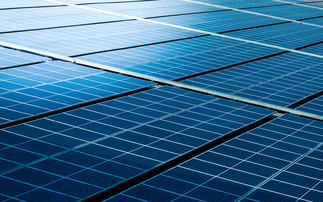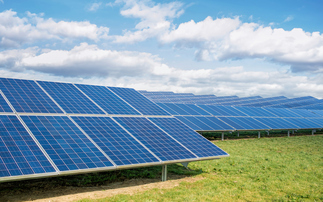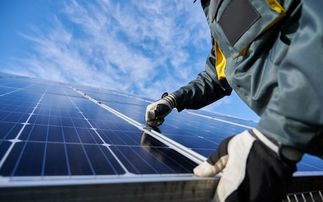SolarAid hits major milestone on its path to eradicating the kerosene lamp in Africa
For SunnyMoney's Victor Koyier, convincing head teachers of the benefits of solar lamps is crucial to his mission to eradicate the kerosene lamp from Africa by the end of the decade.
Koyier, who runs the Kenyan schools campaign for SolarAid's African outfit, spends his working days visiting regions of the country to meet with head teachers and school children to show them how solar power can be a clean, cheap and reliable alternative to its polluting and more dangerous fossil fuelled alternative.
"Selling through schools is how we can reach each and every household," he tells BusinessGreen. "Head teachers are the key influencers within the African communities. If anything is to change it has to come through a very influential member of the community and we use the head teachers to trail the message that kerosene's bad and the alternative lighting could be solar lighting, and that's been very successful."
Targeting schools also links perfectly with the social benefits offered by solar lamps, providing affordable and renewable lighting under which school children can complete their homework, and in turn driving up educational standards in communities.
The method has been so successful that last week SunnyMoney sold its millionth lamp, following a rapid increase in sales over the past year. The charity is now selling an average of 50,000 solar lamps each month, compared to 1,000 per month when it began in 2010.
According to Jeremy Leggett, SolarAid founder, 625,000 of the million lamps sold were in the last year alone, and SolarAid is now hoping to hit the two million milestone by this time next year.
But going to schools is just the start of the so-called "Sunny Money Way". The social enterprise relies on word of mouth, so the lamps have to perform well to keep up the brand's reputation.
"Our schools campaign effectively works to catalyse the market," Koyier explains. "If one person buys one solar light, they tell at least five people, so if they all buy one too, that's 25 people who know about it."
Once they have their foot in the door to a particular community, SunnyMoney will employ local agents who can push further into the market, expanding sales of lights but also selling lamps with mobile phone chargers attached - an increasingly important necessity for African customers.
For example, shop-keeper Sally Kayoni in Bomet, Kenya, now sells more than 200 solar lights each month and says demand for kerosene has virtually disappeared.
All income generated by the sales is ploughed back into SolarAid's efforts as it seeks to expand across the continent.
SolarAid estimates that collectively families are now saving a total of $235,000 per day as a result of the new fleet of solar lamps, while giving school children three million extra hours of study time every night to complete their homework.
But despite the rapid rollout of solar lamps over the past three years, SolarAid still has some way to go before it reaches every one of the 110 million off-grid households in Africa.
Koyier said that a new VAT charge introduced by the Kenyan government late last year threatens to derail its efforts by adding 16 per cent to the cost of each lamp. But to keep costs low, SunnyMoney is developing new charging models, such as allowing customers to pay in instalments.
"We never used to have any value added tax on solar lights in Kenya and since this has now been imposed to everyone, it makes the lamps pretty expensive and not everyone can afford it. So we're trying to find innovative ways to get the lights to people."
With this major milestone achieved in just four African countries over the past three years, the charity is now expanding into Uganda and hopes to further accelerate the pace of sales. So it seems the future remains bright for its ambition to rid Africa of the polluting kerosene lamp for good.
This article is part of the BusinessGreen Solar Hub, hosted in partnership with Solar Aid








